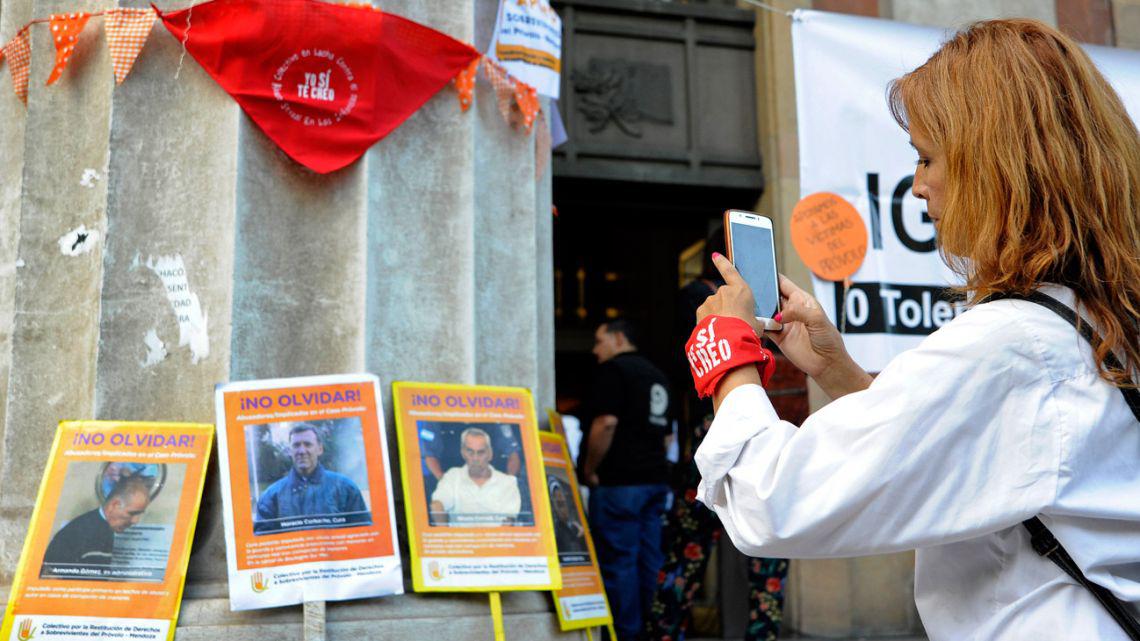|
The sins of the fathers
Buenos Aires Times
Last Monday, in the highly conservative province of Mendoza, there was a landmark verdict sentencing two priests to over 40 years in prison on 25 counts of sexually abusing deaf-mutes at their Instituto Antonio Próvolo school during nearly a decade – sentences far exceeding most homicides. We will not insult the moral calibre of our readers by presuming any need to explain to them why such preying on defenceless victims is wrong and in this case at least there is closure. So (all the entirely justified indignation aside) what more remains to be said? Plenty, because the Próvolo case is but the tip of the iceberg for literally a world of abuse – “Catholic” is derived from the Greek word for “universal” and the Church today is the one remaining empire on which the sun never sets. Countless such cases languish without closure because, among other things, there is no accountability. It is much easier to place two rogue priests in the dock than the Church. Who is the Church? Its visible head is Pope Francis and he has certainly talked a good game over the past six years, while doing very little, but it could always be pleaded that he is trapped within conservative structures against which he is helpless. Yet if we switch the blame to the Vatican, this is an entirely abstract concept which leads us nowhere. The problem runs deeper. From the focus of some media the Church would seem to be almost a paedophile club but it is, of course, rather more than that and this only compounds the difficulties. The Próvolo name is one example of the mantle under which perverts can hide – Father Antonio Provolo (1801- 1842) was a Barefoot Carmelite of Verona (the birthplace of one of the priests convicted on Monday) who in an age of mass illiteracy dedicated his short life to schooling deaf-mutes in order to rescue them from being social outcasts, a good man ahead of not behind his times. There are many Provolos today – for example, slum priests who fight drug-trafficking or those who seek constructive alternatives to abortion for pregnant girls in impossible circumstances, instead of an aridly doctrinaire defence of unborn life – and they could complain with some justice that their work is not given the news coverage lavished on abuse scandals. But beyond such individuals the Church has a vast institutional presence in educational and social spheres – no less than 58 percent of the schools in this sophisticated metropolis are Catholic with far higher percentages in many provinces along with equally impressive percentages in charity work. In short, a prime example of “soft power” which can also be dangerous. If the Church were just a paedophile club, it would be quickly busted unless it found somewhere to hide but it is precisely the power and the credibility from the good which it does that gives the evil perfect camouflage. Along these lines even the purest saint could be accused of involuntary complicity. Breaking through this impunity is difficult but not impossible. Starting at the top, Pope Francis cannot shrug off his huge responsibilities so easily. Rather than the Próvolo case, the pontiff needs to answer questions about former Orán bishop Gustavo Zanchetta, who resigned the Salta diocese conferred on him by Francis in the first year of his reign on “health grounds,” only to be named a financial management advisor for the Holy See – out of the frying-pan into the fire, one might think, given the sinister history of Vatican finances. And if the reactionary opposition blocking Francis are considered the real villains, they are not invulnerable insofar as sins of omission as well as commission are included with coverup becoming criminally liable. The only real solution is the unequivocal submission of these cases to the justice system. Even in previous generations of denialism and shunting rogue priests from one parish to another, there were always voices in the Church admitting these sins but insisting: “This is our problem, we must deal with it and we will.” But they have failed terminally – even such a progressive Church as the German had no register of clerical abuses until 2014. Time is long up for canon law. The clergy should do their job – preaching on Sunday and trying to do good in the rest of the week – but step aside to let the police and the courts to do theirs, as we saw in that Mendoza courtroom last Monday.
|
.
Any original material on these pages is copyright © BishopAccountability.org 2004. Reproduce freely with attribution.
